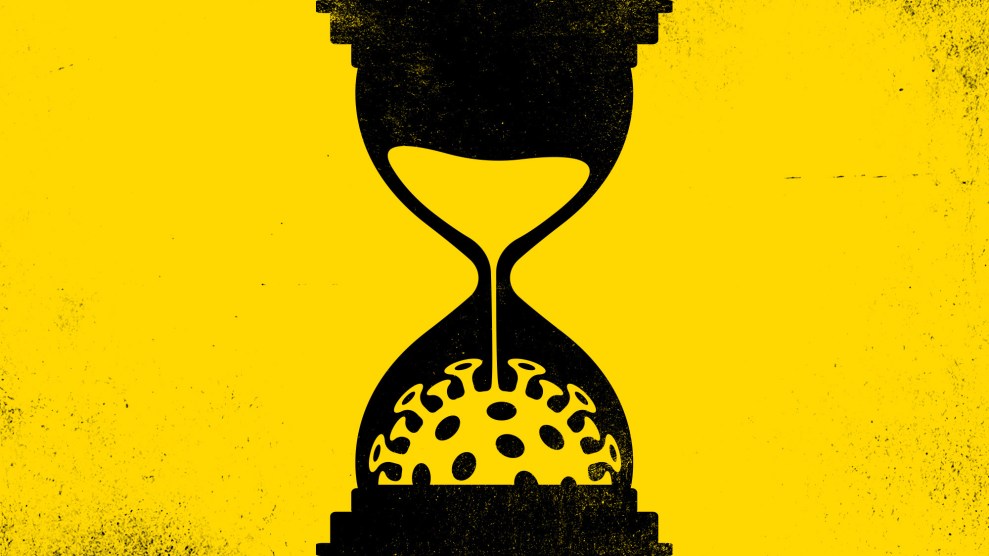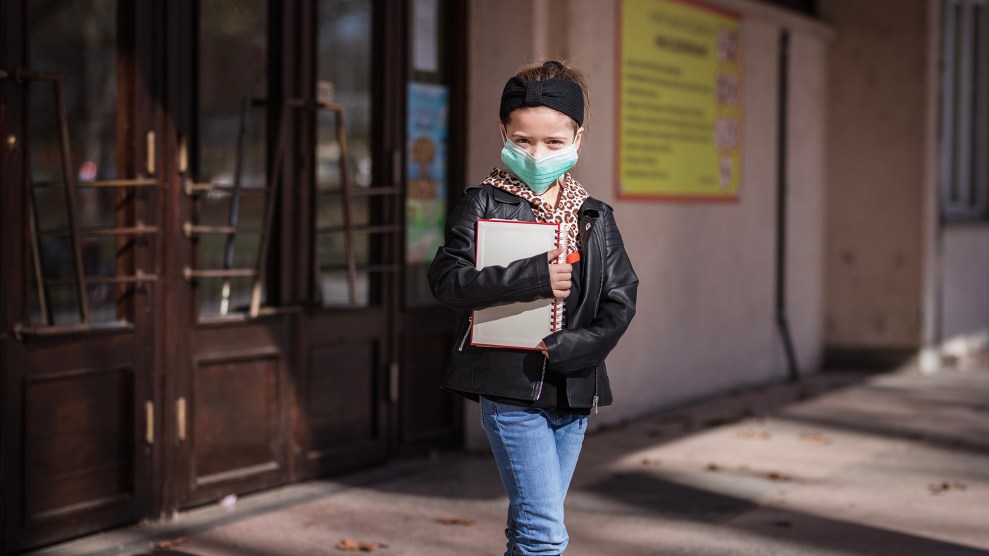
People are seen practicing social distancing in Domino Park on May 17, 2020, in Brooklyn.JOHANNES EISELE/Getty
Researchers in Hong Kong say they’ve documented the “first case of reinfection of COVID-19,” according to a Monday press release. They report a 33-year-old man, who was first hospitalized in March, picked up the coronavirus a second time four-and-a-half months later.
But, experts say, the report is no reason to panic. At least not yet. It isn’t necessarily bad news!
As scientists have pointed out, a possible reinfection isn’t that surprising. And, crucially, the second infection was reportedly less severe than the first in this case. This indicates that the patient was able to mount an immune response that protected him from getting seriously ill—a point that Yale University immunologist Akiko Iwasaki said on Twitter was “encouraging.”
“The second infection was completely asymptomatic—his immune response prevented the disease from getting worse,” Iwasaki, who was not involved with the research, told the New York Times. “It’s kind of a textbook example of how immunity should work.” She added on Twitter, “This is no cause for alarm.”
A first case of #COVID19 reinfection from HKU, with distinct virus genome sequences in 1st and 2nd infection (142 days apart). Kudos to the scientists for this study.
This is no cause for alarm – this is a textbook example of how immunity should work.
(1/n) https://t.co/oekESn0Uhq
— Prof. Akiko Iwasaki (@VirusesImmunity) August 24, 2020
This all more or less fits with what Stanley Perlman, a professor of microbiology and immunology, as well as pediatrics, at the University of Iowa Carver College of Medicine, told me last month—waning immunity, he said, falls in line with what we know about other coronaviruses:
While we don’t truly know what “normal” is with this particular coronavirus, Perlman says, “I think our experience with many, many respiratory viral infections shows that immunity doesn’t last that long. That’s why people get colds over and over again.”
For instance, with MERS, which is caused by another coronavirus, research done by Perlman and others shows that some people who had very mild cases never developed an antibody response. Other people’s antibodies faded after a few months. And some people with severe cases saw antibodies stick around for more than a year. …
“There are different amounts of waning and it’s probably what respiratory viruses always do,” he says. “So what this virus is doing doesn’t appear to me any different than what I would have expected based on what I know about MERS and what I know about the common cold coronaviruses.”
It’s important to note that while this singular case indicates a second COVID-19 infection is possible, it’s still unclear how common reinfection is among recovered patients.
What’s more, it’s also still unknown how long immunity achieved through vaccination would last—or how possible reinfection may impact vaccine effectiveness. As I wrote last month:
Some researchers have speculated that if antibodies diminish, protection from a vaccine may do the same. …
While it’s true that waning immunity—naturally or from a vaccine—isn’t ideal, Perlman says, remember that we don’t yet have a clear picture of how much antibodies fade. Just because immunity drops doesn’t mean it will go away entirely. Plus, our immune systems may respond differently to a vaccine versus a natural infection: “We’re pretty sure, at least based on other coronavirus infections, if a person has a severe infection, then their immunity won’t wane so much. If they have a mild infection, it might wane. We don’t know what a vaccine will do: Will it be more like a mild infection or a severe infection? And that’s really the critical question.”
And, of course, as researchers have noted, Monday’s report is a preliminary finding and it was published in a press release, prior to publication in the journal Clinical Infectious Diseases. As is often true in science, more research is necessary before we can make any solid conclusions about getting reinfected with COVID-19. As Iwasaki writes, “more studies are needed to understand the range of outcomes from reinfection.”
Read more from my conversation with Perlman here.














